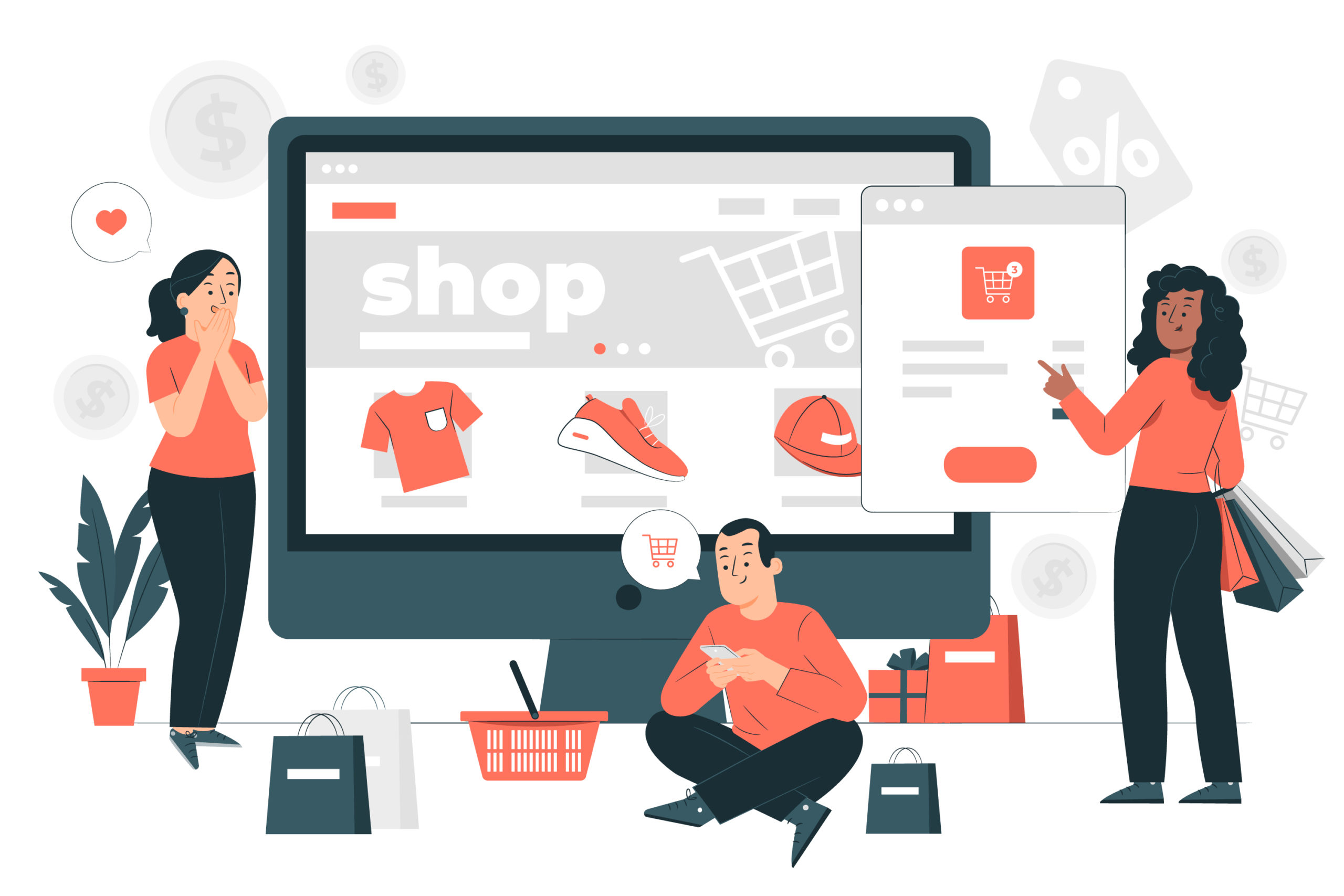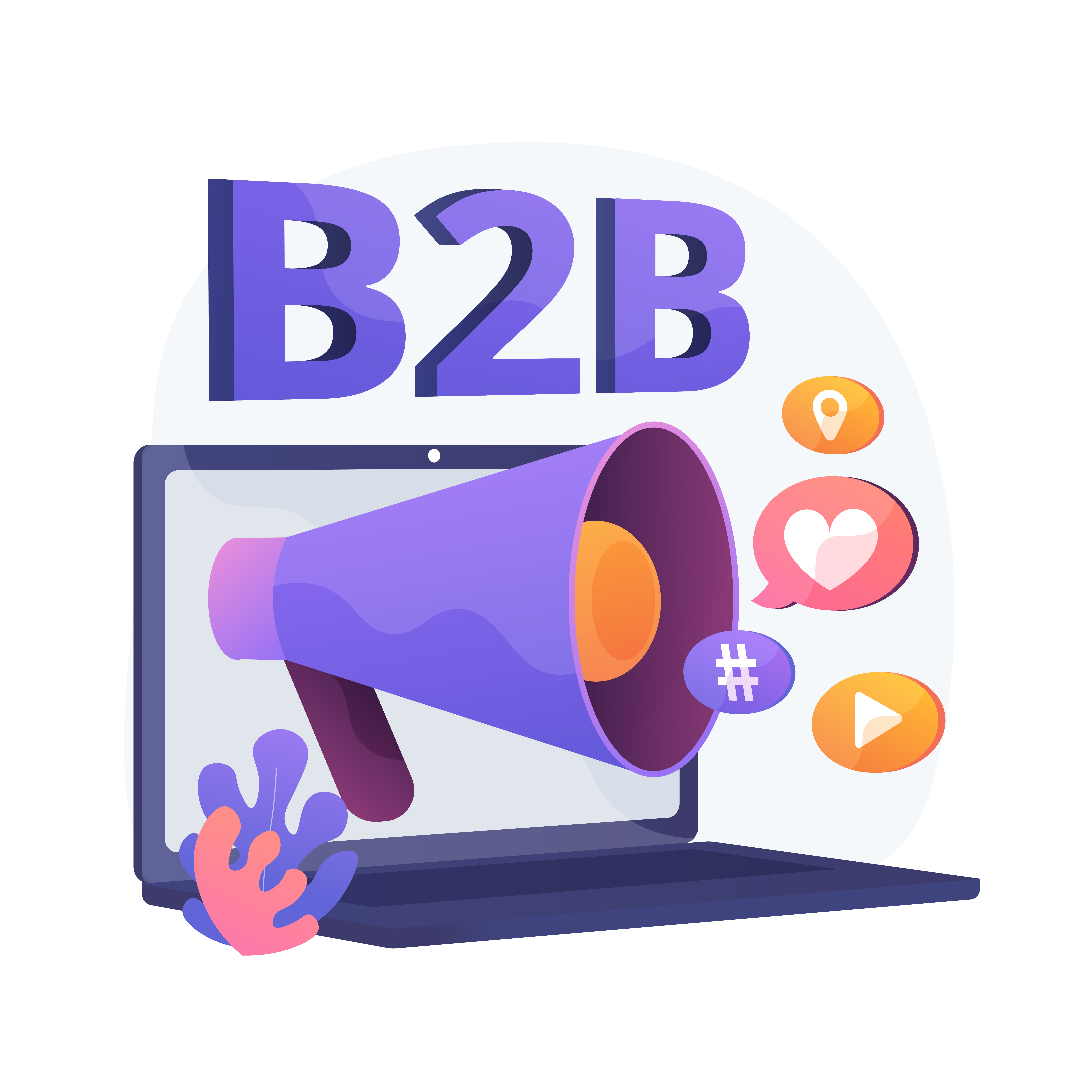While the world of digital marketing and eCommerce as a whole has been changing rapidly over the last few years, there are still many people out there who are putting off making any changes to their business because of the various B2B marketing services myths floating around the industry. The sad thing is that believing in these myths will only hurt a business and cause them to fall behind.
In the highly competitive space of B2B digital marketplaces, it’s vital to understand and meet your customers’ expectations. The sooner you can create improved strategies and keep up with competing sales, the better off your business will be. If you can’t keep up, it’s likely that buyers will turn to other suppliers instead.
Below, we’ll discuss the common B2B eCommerce myths and why they’re false.
Debunking Common B2B Ecommerce Myths
There are a lot of different myths that have been circulating around the industry for the last few years, but these myths are the most prominent.
- A Basic Old Website Is Fine
A basic eCommerce website may have worked fine a few years ago, but now, you need to put in more effort to succeed. The old standard website lacks functionality and the details customers are looking for in a modern, credible brand. A simple website doesn’t have clear navigation cues or helpful content such as detailed product packaging, pricing, or even shipping information. Old basic website formats are also not built for mobile, meaning you’re missing out on about 80% of B2B buyers who shop exclusively on their phones.
A website is an incredibly valuable sales resource, but it won’t boost sales if it’s not designed to help a customer buy the product or service they want. Your eCommerce website should be a showcase of valuable details such as product and service availability, pricing, performance guarantees, and any other information you think might attract customers. You can also enhance a customer’s experience with personalized recommendations to suit their needs.
- B2B Companies Don’t Deal With Ecommerce
This is absolutely 100% not accurate. In fact, nearly 65% of B2B organizations across all industries offer eCommerce solutions. eMarketer even predicts that B2B e-commerce site sales will reach almost $1.77 trillion in 2022 in the United States alone, which totals a 12% increase from last year.
While some businesses suffered during the pandemic, the B2B industry has only grown and evolved. In the UK, B2B e-commerce sales reached £159.3 billion in pre-pandemic 2019 but are now expected to exceed £188 billion by 2024.
If anything, B2B companies are accelerating their involvement with eCommerce, and you should be doing the same.
- B2B Buyers Want In-Person Interactions
It turns out that the modern buyer of today vastly prefers digital self-serve and remote human engagement over in-person interactions. In fact, numerous reports show that video conferencing has taken the lead as the most preferred form of communication in B2B decision-making processes.
Even as the pandemic has started to wind down in many places, the rise of video conferencing has shown no sign of stopping.
- Selling On Marketplaces Isn’t Necessary
Specialized B2B digital marketplaces are getting a lot of attention, and it’s only going to increase from here on out. With the growth and overall dominance of Amazon, the message to B2B businesses is clear: embrace the B2B digital marketplace or get left in the dust.
In this period of thriving multichannel eCommerce, getting left behind is not even an option if you want to survive in such a cut-throat industry. Businesses in every industry are already in the process of building marketplaces of their own or partnering with other big marketplace players like Amazon. Diversifying your sales channels is not just a nice thing to do; it’s an absolute necessity if you want your business to thrive.
- You Don’t Need Social Proof As A B2B Company
Just like with B2C businesses, customers of B2B businesses want their buying decision validated and backed up by data too. They want to research the average customer satisfaction rate before committing to any long-term commitment with your business.
Social proof, such as product or service reviews, testimonials, and Social Media engagement through likes, comments, and shares, heavily influence buying decisions, which can be the key to increasing leads and revenue. It tells potential buyers that you’re a legitimate business selling valuable products or services and that you can be trusted since people who don’t work for you have vouched for you.
Generally speaking, it’s a very genuine way to show consumers that you have what they’re looking for.
- Automation Isn’t A Big Deal In B2B Marketing Services
Sure, it is true that your customers don’t really see the software and automation capabilities you’ve implemented, but when you don’t have these implemented at all, it shows, and your customers will notice.
Let’s break down this claim.
Customers care about receiving exceptional service, which typically involves receiving relevant information quickly. B2B buyers also care about a seamless shopping experience. If you don’t implement reliable software and automate tedious internal tasks, you will be unable to provide the kind of service that your customers will be looking for.
There are several types of eCommerce software that offer you a chance to achieve increased efficiency and streamline your general operations. Investing in these will get you closer to your goal of destroying your competition with stellar products and services.
Are you looking to upgrade your digital marketing and eCommerce game? Shift Refresh is a US-based digital marketing agency that helps businesses smash their competition and emerge as a leader in their respective industries. We are ready to help your business not only grow but thrive. To learn more, call us at 1-888-467-3249 or visit our website https://www.shiftrefresh.com/.


0 Comments